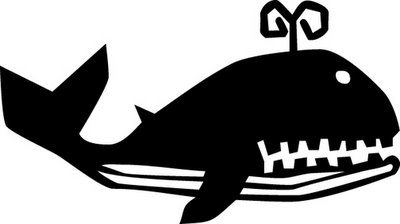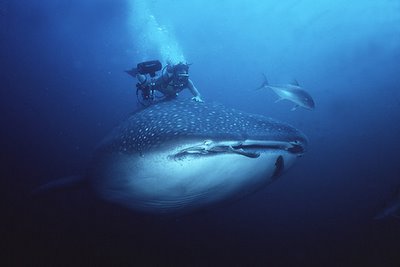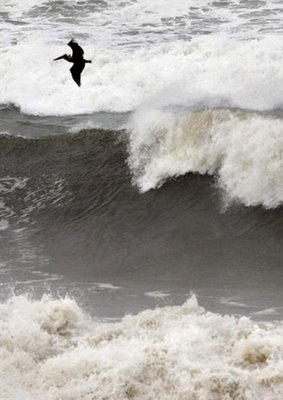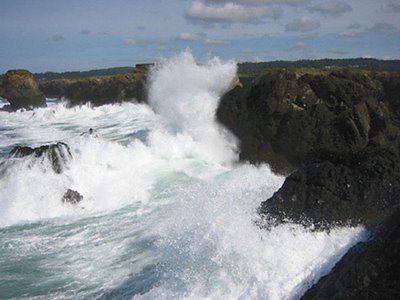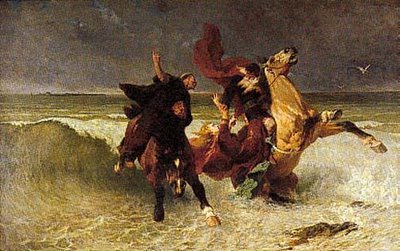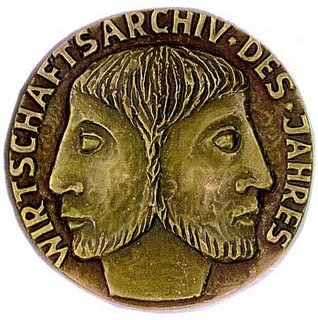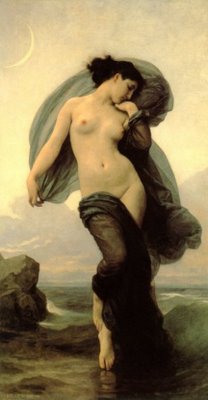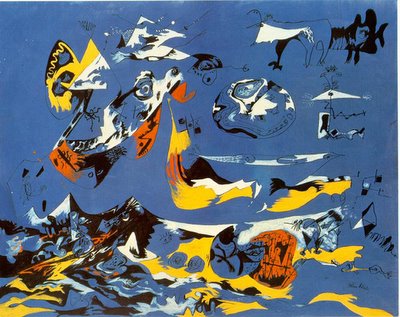
According to Buryat tradition, in olden times the shamans received their
utcha (the shamanic divine right) directly from the celestial sprits; it is only in our day that they obtain it merely from their ancestors. This belief forms part of the general conception of the decadence of shamans, documented both in the Arctic and in Central Asia; according to this view, the “first shamans”
really flew through the clouds on their horses and performed miracles that their present-day descendants are incapable of repeating.
-- Mercea Eliade,
Shamanism: Archaic Techniques of Ecstasy, 67
Has the world always waned? Do we remember first sources like our own puberty, flooding the world with citrus blossoms, everything enrapt, engorged, swelling with fruit next to bursting? No wonder we feel inept and decrepit. My powers are bound by white paper; no mojo found here pours spirits or spreads thighs beyond these invisible yet immutable margins. That was a long, hard, and slow learning, an initiation nursing at the bitterest tit of experience, that pap of no avail, found between the moon and the yew tree, where the darker voice swole like a wave and broke in my ear, saying
FORGET THE OCEAN1996
The ocean is no door. I once thought
it was, travelling north to south
as through the welcome of a woman
I once dreamed of standing on a wave.
But her literal perfections all washed away.
Daytona Beach is hammered flat by cars
and the brunt of addict frenzies; upon
such drear sand, women in bikinis
flicker and lift like pale flame.
Further south, Melbourne Beach is
always troubled and thundrous,
bellowing at the cut in God’s balls
and Venus smiling into foam.
No beach ever kissed my flesh with flesh.
Between dune and sea there’s a promise,
but not to us. Ask the rotting crabs
and manowars. Witness the hang of
battered, bittern scrub. For me, I’ve
always fared far better shut in my tub.
This tub of tumescent verbs crashes loud and long enough for me at paper shores -- ‘tis a vitality I think -- survival of the whale -- though I’ve always doubted some fin of the beast, never quite sure I was an Ishmael of real experience or just a sum failure in it, my fear of the deep greater than my enthrallment with it, rendering me no great lover but a
TIN AHAB2002
... I see now that the force
that made him great
Drove me to the dregs of life. — Masters, “Spoon River Anthology”
Be sure of this, O young ambition,
all mortal greatness is but disease.— Melville
It was the ungodly godly man
whose ship I so earnestly
yet badly sailed. I too yearned
to be a terror of the yeasty deep,
feral, uncompromising, brave,
unmatched but for the whale
which would drag me in the end to hell.
But who’s ever heard of a tragic
hero without a pair of pewter balls?
I merely drank in all the places
I should have been living
with impunity. The heart
of that grand amoral captain
of wild surges eluded me; I was
far too timid, too petty,
to vain; in the end I
was just too drunk.
My nights were just bad Melville,
a sot infatuated with grand
designs drifting in an inky
stinky whaleboat sans
oar or rudder, my will
two sheets to any breeze.
All the grand catches
got away, my barbs cartoonish,
slavish to false rigors.
No man’s more foolish
than he who hammers
a gold man from bad tin:
nor imparts less nobility
to the melancholy ship
he slowly sinks within.
***
Failure at that big night music: did it shore me here, like John Marr, a wounded sailor who must content himself with sea-like prairies, and imaginary letters from shipmates probably dead? One can bring the sea to one’s prose; certainly Melville did, for a time, before the sea he imagined proved greater than any actual book he could write. It took a youthful and vigorish prose to tack and gambol that sea, the old big night music crashing and dashing and brutal. “Blubber is blubber you know,” Melville wrote to Dana, author of
Two Years Before the Mast, “ ‘tho’ you may get oil out of it, the poetry runs as hard as sap from a frozen maple tree; --+ to cook the thing up, one must needs throw in a little fancy, which from the nature of the thing, must be ungainly as the gambols of the whales themselves.” What does it take to write down that wild Cape Horn sound?
BOAT SONG2001
He would say the most terrific things
to his crew, in a tone so strangely
compounded of fun and fury, and
the fury seemed so calculated merely
as a spice to the fun, that no oarsman
could hear such queer evocations
without pulling for dear life,
and yet pulling for the mere joke
of the thing
— Moby DickThe pulling’s the thing — Pull hard!
Pull deep! Maul the sinews
of your work from the
bottom of your heart!
Only in such surrender to
the task will ye reach
that mountain of hellfish!
Row as if perdition’s jaws
were snapping right behind ye!
—It’s
that vital,
though the real sea
is a thousand leagues
from this dry watch,
a cozy chair at 4 a.m.
with a heating pad
comforting my back
and a pile of the usual
books to my right:
Row hard or you’ll never
breast the mystery within!
To you only poems
of wakes and
soundings and spume
too far in the distance.
Row for everything and all,
man awash in
in a wilderness of verbs!
Make each stroke count!
There’s a bucket of
sperm gold brimming
hot beneath you, an
oil for every lamp
burning down winter’s
night. — Row, man!
Write these wild seconds
before they sound again!
As the actual sea wears one out, does the verbal one too? Can only the first shamans, the first singers, fly forever? Was their ambition heeled by the God who brought them into being? Are we all Lucifers of first light, bitching and moaning in the vast keeps of dark bone we have fallen into? Eliade:
***
Certain legends explain the decadence of shamans by th pride of the “first shaman,” who is believed to have entered into competition with God. According to the Buryat version, the “first shaman,” Khara Gyrgan, declared that his power was boundless, so God put him to the test, taking a girl’s soul and shutting it up in a bottle. To make sure that it would not escape, God put his finger into the neck of the bottle. The shaman flew through the sky, sitting on his drum, discovered the girl’s soul and, to set it free, changed into a spider and stung God in the face. God instantly pulled out his finger and the girl’s soul escaped. Furious, God curtailed Khara-Gyrgan’s power, and after that the magical abilities of shamans markedly diminished.
--
Shamanism: Archaic Techniques of Ecstasy, 68
__
Do our highest and best ladders get kicked down from above? Or are they grabbed and shaken by wiser hands below? Hubris is such a sticky valence, tarring and feathering us into the dodos we actually are. We might rival God in our powers, but we are not God. Cape Blue crashes and pounds here in salt similitude, but I cannot presume to harrow that etern crashing horror. Eventually we’re reminded of how much inside of all that we’re missing.. “If I speak in the tongues of men and of angels, but have not love, I am only a resounding gong or a clanging cymbal” (1 Corinthians 13:1)
Melville’s my hero here, in all of his perplex ambition and damage, his achievements and failures both worth praising, his mortal mixture. During a visit by Melville to England in 1856, he and Hawthorne (who had by then a diplomatic post in London) took a walk by the sea, conversing as old friends much cooled of their former ardor. Melville by then had lost so much of his former ambition,
Moby-Dick deemed by critics a failure, his next book
Pierre reviled as half-mad, the gift ebbing from his work though it remained in his talk, his spirit. Hawthorne wrote of the day in his journal,
***
Melville, as he always does, began to reason of Providence and futurity, and of everything that lies beyond human ken, and informed me that he had “pretty much made up his mind to be annihilated”; but still he does not seem to rest in that anticipation; and, I think, will never rest until he gets hold of a definite belief. It is strange how he persists -- and has persisted ever since I knew him, and probably long before -- in wandering to-and-fro over these deserts, as dismal and monotonous as the sand hills amid which we were sitting. He can neither believe, nor be comfortable in his unbelief; and he is too honest and courageous not to try to do one or the other. If he were a religious man, he would be one of the most truly religious and reverential; he has a very high and noble nature, and better worth immortality than the rest of us.
(in Delbanco,
Melville: His World and His Work, 253)
***
MOTLEYED MELVILLE:
A MEDLEYJan. 9, 2006
I.
Motleyed Melville is my gospel
or what’s left of it these
ebbing days: He was the
man of common rips
and sunders, failing Dad,
too dry a mother,
heading off to a sea’s
blue thunders leaving
behind bad days. He got
soaked in the salt of an
immensity which later
bid him write it down
and thus he launched
a fleet of novel frigates,
only one of which could
balance salt with vigorish
to clear his proper and
so fallen shores. That
once imagination and means
ruddered in him huge
and magisterial, mad and free
of portside damage and
Christian democracy.
That work hauled off
from every known shore
that had yet been said
and then wrecked him
in his deepest seas.
With no shore he
would paddle home to
he had little left to do
but curse indifferent
publics and fend on
with words once loud
grown drear into a
private man’s retiring
jail of drying verbs.
No wonder he burned
all his letters and
manuscripts, freeing
himself not of words
but of our lubber’s
sterile sense of them.
Thus Melville sailed on,
leaving us to bicker on
as we do about
all that loosened
from that descending
boat and beast -- modernist
prose, fascist manifesto,
gay sally, phrenology
of the sea’s broad fascias.
Only a smaller man could write
that one great book, a
doubter of all textures
yet delving all they yet
surround, like salt water,
abysms of the will to know
what madness renders
moot. Only a goodly ungodly
man could write of the
ungodly godlike one,
finding in faith’s faltering
fury enough to barb it to
the page and hold it there
in paragraphs of wilding wrench:
What else could Melville
do, having delved the full
bass octaves of the Whale?
And who, indeed, wrote
that Whale down, Melville
or Ahab; or did Moby
thus write them?
Melville sought to earn
a living writing down the
sea-tales of his youth
but for one book that
voyage mastered him;
he later said that two
books finned through
Moby-Dick, “the larger
book, and the intimately
better (one) ... for (his) own
private shelf,” or, vice versa,
the one which “demands his
ink” and the other “whose
unfathomable cravings drink
his blood.” He sought the white
whale but really Dick steered
that black book from behind,
a fin of sperm’s eternity which
was all a man of that day
could hook, perhaps ever.
Moby-Dick racked up some
500 bucks in sales and
was roundly panned by
the press, decrying its
wandering narrative,
snoozer asides,
fractured voices, doomed
ends. Then a warehouse
fire burned the inventory,
like a try-works burning
all the author had dreamed
of magnitude. And as
those books leapt into
fire, some darkness leapt
back into that author’s
ire, never to be found again.
II.
As the shamans of the
Buryat contend, the first
ones received their divine
fires directly from the
sky, and flew real horses
there; later generations
had to content with
ancestors, not divines,
and fly imagined skies.
So when I dare propound
the margins of the whale
I do in fished-out seas
where no one roars
with Ahab’s spleen, and
everyone calls themselves
Ishmael, paddling on
tidy self-graven caskets
over “all the stirs up
the lees of thing” in jobs
and wives and cats,
mowing not seas but lawns.
Last night I dreamed
of trading places with
the friend I left behind
who stayed to play in
bands -- He stepped out
of memory to assume this
chair, while I strapped
back on my blue guitar,
as far from that insouciant
two-bit rocker as the
hour of this night
to that one. And played
his songs again. I
poured over PA manuals
learning again to work
the sound & clopped
about town on crutches
saying farewell to my
wife & wondering just
how to rock the soak
of time’s abysmal pour.
Ahab’s not Melville,
nor Melville this man,
though some brogue
infernity dismasts and
mans us all and bids
us roar the wretched
night of wind and wave
that capsizes daily
enterprise & makes
of wreckage home.
At the cracks of doom
in the great below
scientists of late have
found vents that hiss
& swirl; and in that
total darkness they’ve
found colonies of
worms and crabs
thriving not on light
but heat’s bacterium.
Ahab’s down there,
harnessed forever to
Moby’s breast, and
Melville too, his book
on them strung around
his neck, book pages
opened to the gospel
Father Mapple intoned from
in his ship-shaped chapel
by the sea. That music’s
loud in my ear like the
roar of amplifiers I
once sailed upon, a
wilderness I hymn here
till the roaring’s done
with me, no matter
what the cost to
the paper man I dream.
I am thus obedient
in stepping off the ledge
to drown the seams
of sense and song
in this pure verbal sea:
For home is where
the heart sinks to,
and mine hunts dark
men ferally to
no longer placard
capitals of God or
gal or sea but the wild
lacunae of all three,
perfecting all they
wrought when they
self-ruined me. Thus
that motleyed Melville
is gnostic text enow
to keep the dark vents
burning and this
hand every churning
the oar-handle home
toward the next verboten
swirl of bubbles heading
down what’s left of prose
to the bottom where it grows.
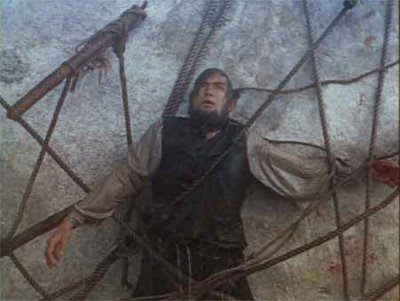
Yeah, it’s always about Me and “mah Bee-You-Tee-Full Self,” as Johnny Rotten once crooned with the Sex Pistols. Love affair divine, ego and anima ever a-dance in a world of phosphor appearances. Maybe it’s amazing how much of my day I stay submersed in these liquid meditations, these conversations with that spot in the Pacific where the Pequod and Moby and Ahab and Melville went down, whispering like a breeze over the salt immensity, calling them as I say my own name ... cold this weekend, bitterly enough for Florida, temps into the mid-thirties both Friday and Saturday, enjoying quieter time at home after bruising corporate rugby the previous week, my wife battling a custom job to the bitter end, her anxiety over a coming operation ratcheting up, exploding Sat. night when she cracked her head on the door of the bathroom cabinet mirror over the sink and just collapsed on the floor, weeping, saying “I'm just so worried,” ... ‘s all right babe, I crooned, trying to hold her, but she just snapped at me and told me to leave her alone ... Sunday she’s in a cone of her own silence, knocking out the last two cushions of the job, finding toward the end that there’s not enough cording to circle the cushions, natch, another trip to JoAnn’s fabrics, another delay in getting this done .... I do the Sunday routines of gearing up back for work, wash clothes, clean the litter box, enter checks in the checkbook, vacuum downstairs, clean the downstairs bathroom, work in the window box setting in new petunias (limp and fragile purple blossoms which should love the shout of sun that box gets all day), lunch alone watching Carolina whup the Giants in the NFC playoffs, nap a while upstairs in all of that shouting sunlight -- cool yet halcyon, of a stillness somewhere between enlightened and dead -- read Melville’s biography a good while, iron clothes watching
Thunderball on AMC (remembering how the big night music was so much my thrall with James Bond, first shaman, perfect hero, hetero Tyrannosaurus, only his martinis shaken, his heart rarely stirred), cook dinner, eat with my wife watching the Bob Dylan biopic
No Direction Home on DVD, night cooling down cold again, Dylan’s story retrieved strangely into the present, like this whale we forgot, surfacing and blowing vintage 60s silliness into the wind -- silly to me, guy couldn’t sing worth a damn, lost his poetry in the big sound of his “Blonde on Blonde” rock-n-roll, celebrity stealing off with the poet for decades until this moment when the simple man of his words gets back in view of the camera (why now? mortgage payment? retirement money?) -- or is it that real artists are so hard to see and appreciate amid the cultural clutter of faux-ownership, as if those songs were ever his or ours, but rather blowings of a whale we’ll never really understand, much less simulate ... I went to bed around 9:30, big workweek ahead, leaving my wife to watch the rest on her own, my mostly silent partner of a quiet weekend, tangling with her own demons of greatness and silence, making small sense of her own day ...
***
A good half of writing consists of being sufficiently sensitive to the moment to reach for the next promise which is usually hidden in some word or phrase just a shift to the side of one’s conscious intent.
-- Norman Mailer,
The Armies of the NightMIXED BLESSINGS 1994
Sunlight washes
this room, hides,
then returns,
revealing in one day
two shores,
two dolphins
chasing each other
over and through
the waves.
Simple to say
these antiphons
of light and shadow
teach the heart
to love its life
and fret love's end,
but these are not
simply alternation,
but doubly a reverse:
an unrivaled revel
pulsing over the grave.
All of this favors
the poem, I think,
and guides my words
with a thirst all waters
yet none may quell.
A poem dowses its
way to love on a path
of frangipani and yew,
with only their counter rages
to scent a middle way.
Thus I write
in praise of all
mixed blessings:
and pray for the wisdom
the half-scythed,
half-sighted.
Knowing my certainties
are no compass.
Coming to believe in shreds,
vagabond indices
of a truth
weaving
and leaping
about a room.
***
Not anyone who wants to do so can become a medicine man; vocation is indispensible. And this vocation is manifested above all by an unusual capacity of ecstatic experience.
-- Mercea Eliade,
Shamanism: Archaic Techniques of Ecstasy, 65
***
The sufferer of a bruised penis, fearing the cure of “legitimite and almighty gods” like Phoebus and Aesculapis,” who might suggest circumcision, prays to a lower god for a like cure in Priapal Epigram #37. Prayer, poem, votive for like healing like, a poet getting real, or really into his Theme:
I blushed to offer for cure my cock
And prayed -- “Priapus, an thou heal the part,
O Sire, whose very counterpart thou seems’t
And without hacking, make it whole again,
One limned on tabled to thee be given
Like-sized, like-colored, and alike of shape.
The God to promise deigning wagged his yard,
By way of nod divine, and did my bede.WATER-FALLJan 7, 2006
Few take showers under waterfalls
singing louder than that blue cascade,
but most of us can hear it crashing
near yet far. And many of us try to
ramp up our voices to that augment
with what meager throats we have
or yearn for. Sometimes all one
ferries of that sound is one phrase
in a fleeting falloff from the droning
of a poem, like a patch of blue in
overwhelming clouds. Another hears it
for a while in the rapture of another’s
love before that person walks forever
off, relicking that memory on an
altar with one or two other nights
laid there never to return, always
revered. Such minor epiphanies
so rout the major vein that there’s
an angelic clout to such humblings,
an augment of some lower burn
which makes of sporadic gleams
cathedrals, as if that smaller music
heard in distant rooms sufficed
for lost divinity. Each age seems
to relish small and smaller ecstasies,
their pedastels reduced to stumps
by failing eyes and narrowed sighs,
settling for settling for because
no one, it seems, knows how to make
the water fall those old wild ways again.
No gods, no votives, no prayers, no alms
are in the once harrowed rooms we
now store once-vibrant precipices
in dimming words for them while
we go about our lives. Sufferers of low
complaint came to fear the cure
of regnant ever-more-distant gods
and thus lowered the sacral bar,
praying to lower one by writing
phallic prayers on tablets and
stetting them at the feet of priapal
gods rogering the routed garden.
Cure me in like and kind, they’d pray
to venereal angels. As they we too,
who have so far banished death from
our living rooms that we can’t
feel its waters crashing down.
We’ve become like gods where
youth and clout are beamed around
the globe with perfect starbright teeth,
ever changing channels because
there’s nothing and less to see
and its falling all around us,
an angelic pure blue scree.
THE WHALE WILL IMPROVE2002
The whale will improve.
A few more harpoons,
Ahab's bones now lashed
to his ear—
no problem,his flukes seem to
semaphore as he
descends from our sight.
Not so poor Ahab,
unmanned at last
by his pride.
Even ungodly godly
men find their
grave at last
wrapped in the skeins
of their unmakers.
The Pequod’s bow
took a mighty whack
and sank mid-Pacific
in a spoor of lost
whale oil. And after
that one hour
of malevolence,
man the hunter
hunted down at last
by whale the wicked,
the white heart
of God is now beneath
the wave,
and all is calm,
almost paradisal.
Smooth as sated lovers
and dead kings.
